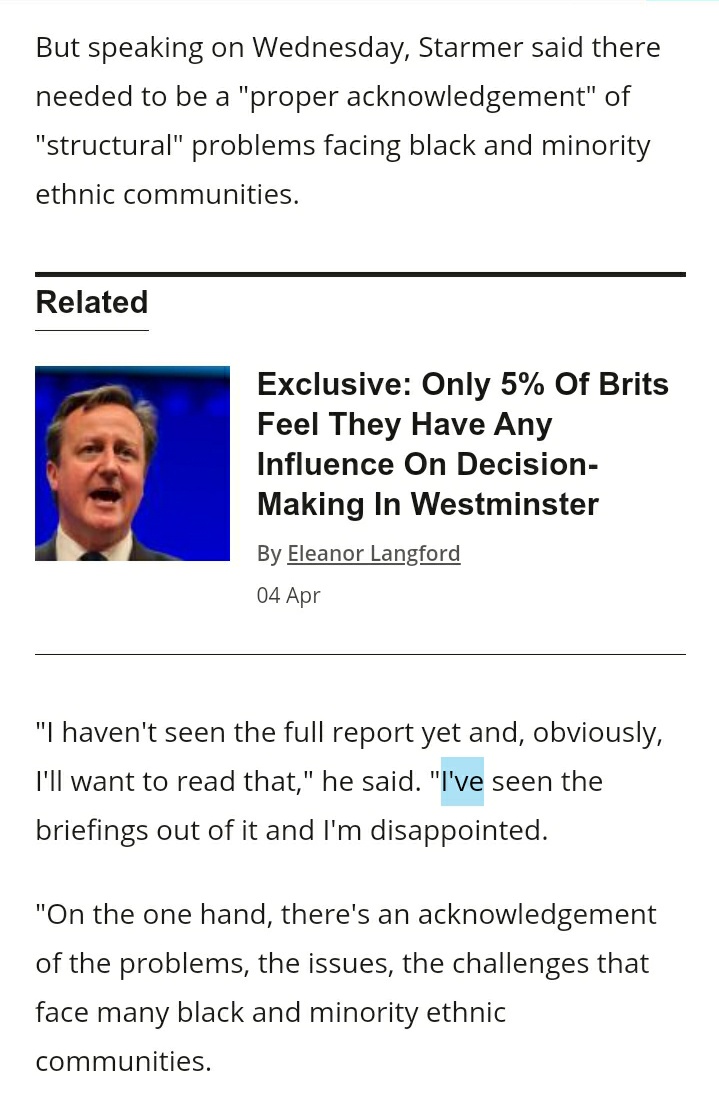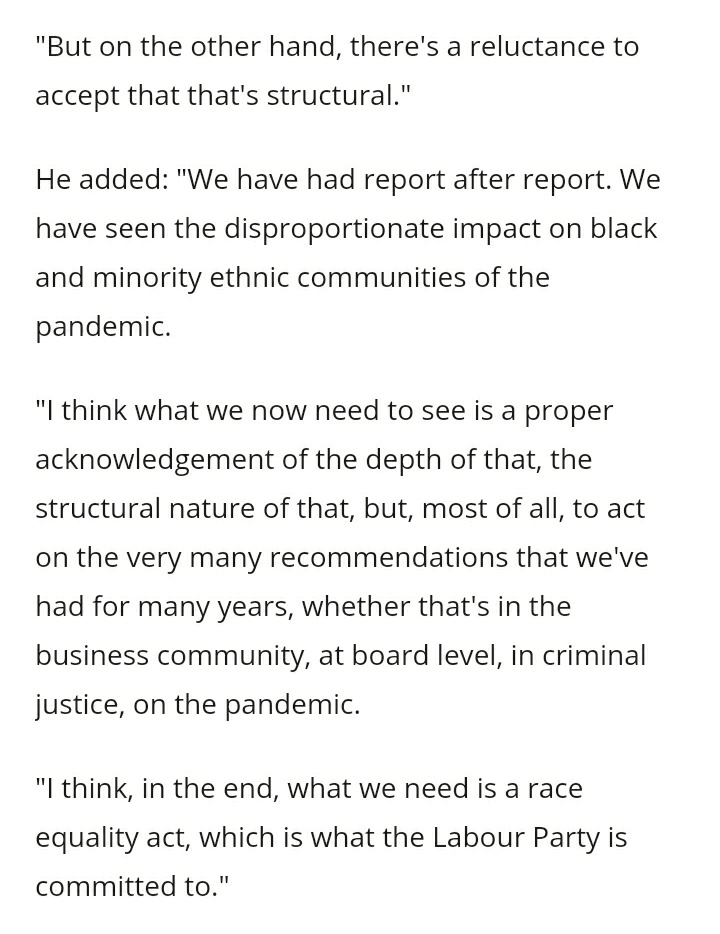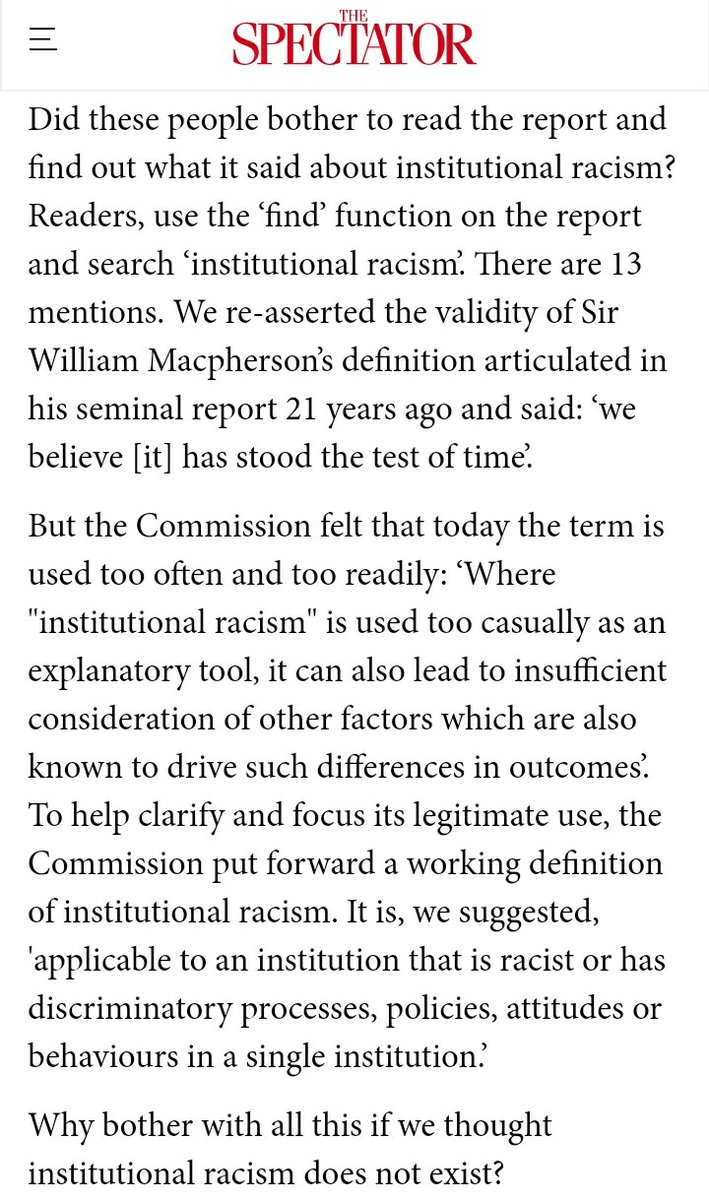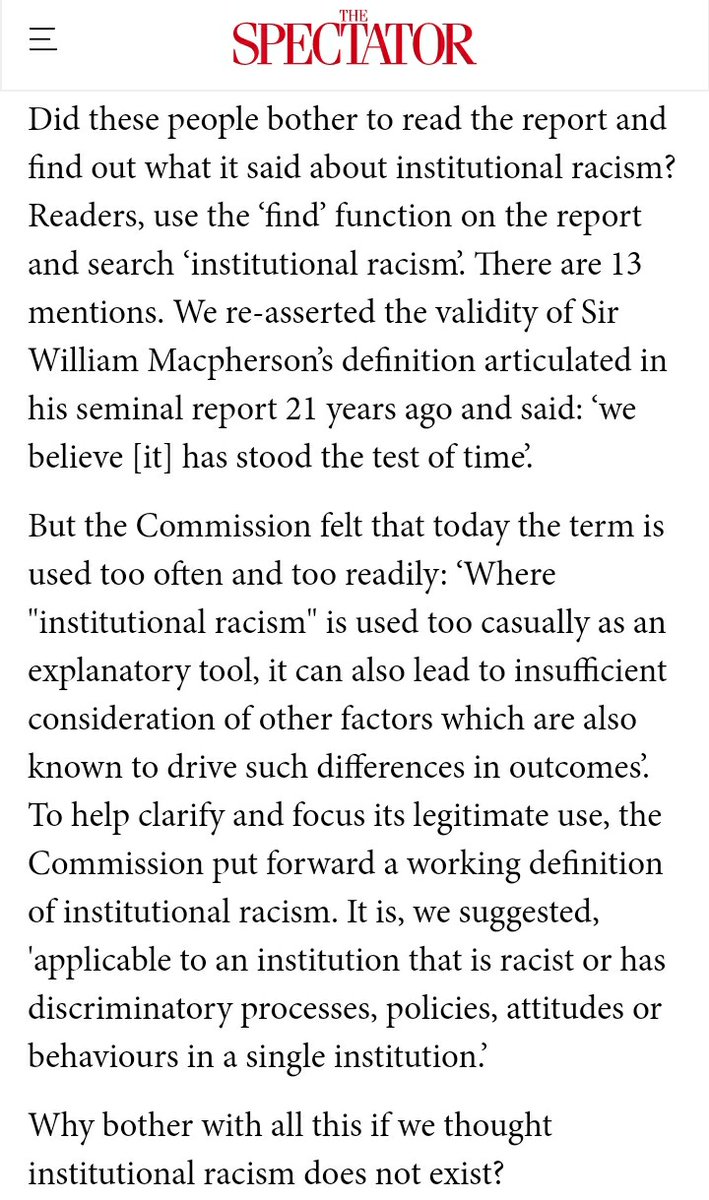
Calvin Robinson who likes the report says that he disagrees with the idea in the report that more representative police forces would be useful to race relations or policing. 

He didn't actually make any argument about policing at all. He simply spoke about being opposed in general to noticing immutable characteristics, conflating not caring about the make-up of police forces with being fine with all male panels (making a slightly contradictory case)
On a purely meritocratic view, clear logic as to why make-up of a police force is a pretty useful indicator of meritocracy (if one takes any interest in whether slogan of equal opps is realised in practice). Calvin ignored that: spoke as if the only approach here could be quotas
If one thinks beyond soundbites & slogans, any serious liberal "fair chances + no unfair barriers" approach would treat factors like the composition by social class, geography, gender, ethnicity or faith as somewhat useful indicators 

To regard this as not useful at all, one requires an account of a different distribution of natural aptitude, and/or different preferences across the particular social groups, or some other longterm explanation to not expect meritocratic conditions to end up with a reasonable mix 
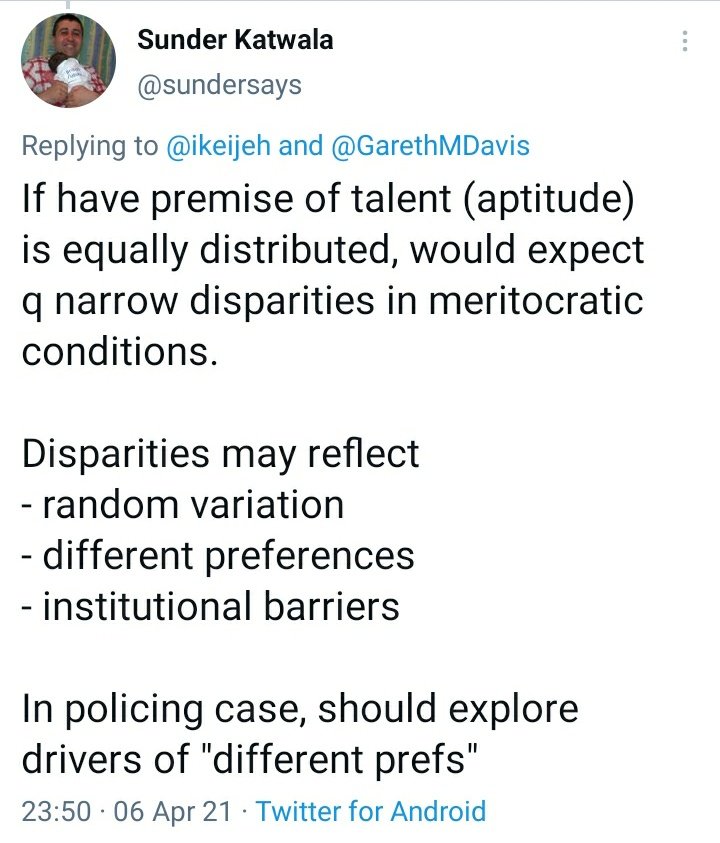
Take the sloganising seriously (argument: we should not talk about immutable characteristics/ only diversity of opinion matters), commonplace observations about white working-class boys would be offside too. So this principle does not seem coherently applied or thought through 

In response, I said that I am myself quota-sceptic, favouring other approaches to promoting equal opps & checking our progress.
I found the argument put for never noticing immutable characteristics "too French" (if arguing to not collect data that allows us to audit progress)
I found the argument put for never noticing immutable characteristics "too French" (if arguing to not collect data that allows us to audit progress)
I doubt claim that "whether or not there were any Catholics in police force in Northern Ireland after 1999 was simply irrelevant to quality or legitimacy of policing in Northern Ireland in this century" is a serious argument. One could argue for different methods of progress.
An argument that the ethnic mix of the Met or the West Midlands is irrelevant, and not something anybody should look at, as it will tell us nothing useful about equal opportunities, or legitimacy/trust in policing, over the next 20 years seems very thin & implausible to me. 

Sensible version of sceptical argument would be
- is one useful indicator
(Eg, make-up of cohorts)
- oppose quotas
(Eg, worry re quality of recruits or perceived/actual unfairness to others)
- outreach efforts to attract recruits fine (should go in many directions/fairness)
- is one useful indicator
(Eg, make-up of cohorts)
- oppose quotas
(Eg, worry re quality of recruits or perceived/actual unfairness to others)
- outreach efforts to attract recruits fine (should go in many directions/fairness)
I can see no sensible meritocratic objection to recruitment efforts targeting social groups historically less likely to apply (if they do not do so exclusively)
In principle, this would be like objecting to Cambridge Uni trying to encourage applications from North-East of Eng.
In principle, this would be like objecting to Cambridge Uni trying to encourage applications from North-East of Eng.
"Meritocracy" is a candidate-focused lens. Fair chances to secure job X
"Effective policing" interested in
- good recruitment & retention
(Want to draw on aptitude across society)
- public legitimacy & trust being high & broad as possible
(Helps operationally & more broadly)
"Effective policing" interested in
- good recruitment & retention
(Want to draw on aptitude across society)
- public legitimacy & trust being high & broad as possible
(Helps operationally & more broadly)
I have not heard any serious argument that the ethnic composition of police forces over time is just irrelevant to
- quality of policing
- public legitimacy of policing
- equal opps in the police force
There seem to be good reasons this can matter, along with other things
- quality of policing
- public legitimacy of policing
- equal opps in the police force
There seem to be good reasons this can matter, along with other things

• • •
Missing some Tweet in this thread? You can try to
force a refresh


